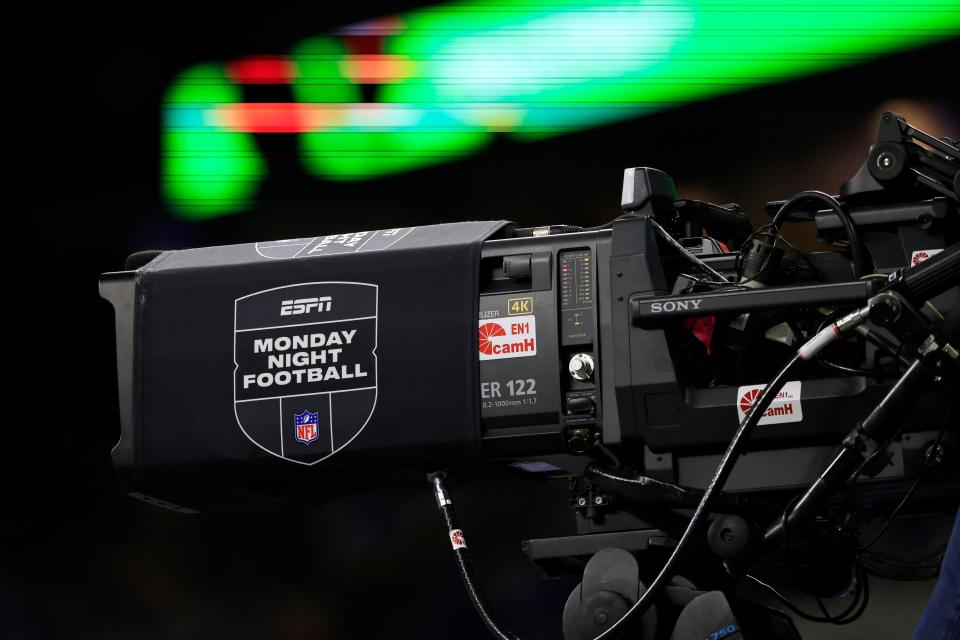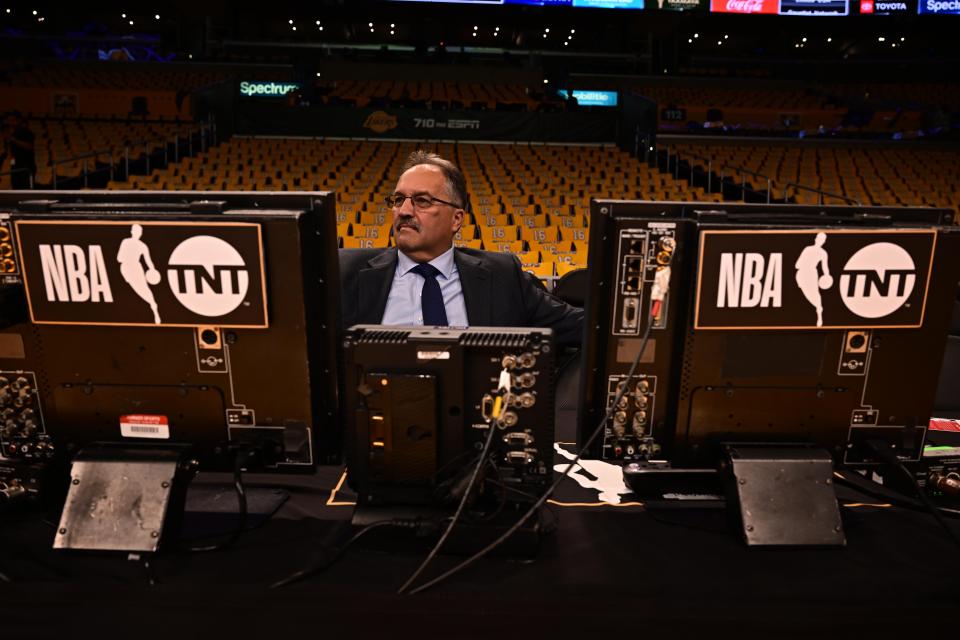New sports streamer will change TV as we know it — and may start an industry fight. Execs tell me what they really think.
A new sports-focused streaming platform could anger pay-TV distributors and sports leagues.
Disney, Warner Bros. Discovery, and Fox announced their new jointly owned venture Tuesday.
I talked to industry execs about the new streamer. Here's what they really think.
The new sports streamer that Disney, Warner Bros., and Fox announced Tuesday is a really big deal that could reshape TV.
It could also piss off the key partners those programmers are already working with: the big pay-TV distributors and the sports leagues.
That's important because the programmers pay sports leagues a ton of money to carry their games. And then they charge the big pay-TV distributors a ton to carry their broadcasts of those games.
The new deal could put pressure on both of those arrangements, industry executives told me when I talked to them after the deal was announced.
And while the programmers behind the joint venture won't say this out loud, they seem pretty aware that they're going to get some blowback here.
Which may explain why, up until Tuesday, they hadn't told any of the pay-TV companies or sports leagues about their plans, industry executives tell me. (No one I talked to wanted to go on the record, yet. Though it's possible we'll hear from them in the coming days as they digest the announcement.)
Why a jointly owned sports streaming platform makes sense
We'll get into the possible friction in a second. But first, the logic of the programmers' pitch, both for consumers and for the industry:
For consumers: The programmers are telling you that this is a package that gives you a lot — but not all — of the best sports on TV. And that they'll sell it to you for less than regular TV because they're not including nonsports programming.
So if you're a person who only pays for cable because it has live sports, this may be for you. And — this is what they're really hoping — if you don't pay for cable at all, maybe this would be something you'd like.
Important caveat here: If you watch the NFL — the most popular programming on TV — this package won't be a full replacement for the stuff you're already paying for. That's because the bundle doesn't include CBS and NBC, which have big deals with the NFL, so you'll be missing about half the games you'd get with traditional pay TV.
(My colleague Nathan McAlone suggests that you can get those missing games for free by simply buying an antenna and picking up the over-the-air broadcasts. And that's technically true — Nathan tells me he does it himself. But if you're the kind of person who's buying an antenna to watch sports TV, you're not going to buy this thing anyway.)
For the industry: The programmers are describing this as a "virtual MVPD," which is a technical way of saying "cable TV package but delivered on the internet." There are a bunch of these on the market already, including services like Hulu Live or YouTube TV (which is getting really big).

That description is important for several reasons.
The first is that it explains how the programmers will get paid for the stuff they put in the bundle — just like they get paid when someone buys a subscription to pay TV from Comcast, or Charter, or anyone else. That means ESPN, for instance, will get the $10 it charges Comcast for each subscription it delivers — just that this time, the company paying it will be partially owned by ESPN.
This also explains why the programmers have been floating a price point of $50 or so a month for the new bundle thing: They have to sell the programming to themselves at the same price they sell it to the cable guys and everyone else. (This was also described to me as the logic for not including NBC and CBS in the package — once you add in their fees, you'd end up with something that costs about the same as regular cable TV.)
Sports leagues could actually gain audience
Another reason the "this is just another pay-TV service" argument is important is that programmers want to tell the leagues that they're not losing anything here, and may be gaining something.
That is: If someone decides to stop paying Comcast and switches over to the new bundle instead, the sports leagues' audience stays exactly the same. And maybe, the pitch goes, the bundle will attract a new audience that isn't paying to watch this stuff, so the league's reach increases. (This, by the way, is the same argument that Comcast and the NFL made when they put that playoff game on Peacock last month.)
And, crucially, the programmers want to tell the likes of Comcast and the NFL that this is a virtual MVPD because virtual MVPDs already exist. And sports leagues and traditional pay-TV companies are OK with those, more or less. Paraphrasing a TV executive I talked to Tuesday night: "This isn't any different than YouTube Live or Hulu Live, so relax."
On the other hand! If the programmers truly thought the leagues and pay-TV guys would be OK with this, they probably would have told them before they announced this thing. And the leagues and the pay-TV guys definitely have some concerns.

One big one, from the pay-TV guys: "Wait. I'm already paying you a ton of money to carry your programming — and now you're going to go and take that same programming and use it to compete with me?"
And from the sports guys: "Wait. All three of you used to compete to buy TV rights from us. Now you're all working together? How is that good for us?" The analyst Michael Nathanson flagged this Tuesday night in a research note he published on the announcement: "Will the new structure ensure that each competing stand-alone company is still incentivized to go as big on their next set of sports rights?
A big, obvious test case for this question will be the upcoming deal for NBA rights, which are currently shared by ESPN and TNT/TBS for $2.7 billion a year. The league wants to jack that up to $7 billion or more. Do ESPN and TNT compete as hard as they did last time for that deal — as long as one of them gets it and puts it in the new thing?
Pay-TV companies and sports leagues might have no choice
Which leads us to the biggest unanswered question: Even if the pay-TV guys and sports leagues really don't like this deal, is there anything they can do about it in the long run?
And the likely answer to that one is: No.
Longer version: The Comcasts of the world may not like more competition, but they never like more competition. They complained when the satellite guys like Dish and DirecTV got into the pay-TV business, and they complained when telcos like Verizon and AT&T got into the business, and they don't love the digital competitors, either.
But they'd still rather have sports and compete with the new guys than not have sports at all. Also: The big TV guys didn't like it in 2015 when HBO started competing with them by selling itself as a stand-alone service. But in the end, they couldn't do anything about it.
And that's what the sports programmers are hoping happens this time around, too.
Read the original article on Business Insider


